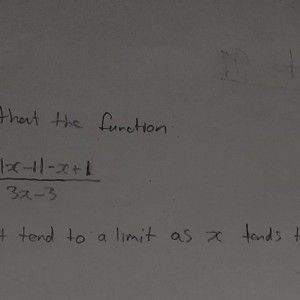Prove the Function
Answer
Answers can only be viewed under the following conditions:
- The questioner was satisfied with and accepted the answer, or
- The answer was evaluated as being 100% correct by the judge.
 Dynkin
Dynkin
779
The answer is accepted.
Join Matchmaticians Affiliate Marketing
Program to earn up to a 50% commission on every question that your affiliated users ask or answer.
- answered
- 1509 views
- $5.00
Related Questions
- Reflexive Banach Space and Duality
- Two exercises in complex analysis
- Let $f\in C (\mathbb{R})$ and $f_n=\frac{1}{n}\sum\limits_{k=0}^{n-1} f(x+\frac{k}{n})$. Prove that $f_n$ converges uniformly on every finite interval.
- Subspace of a Normed Linear Space
- [ Banach Fixt Point Theorem ] $\frac{dy} {dx} = xy, \text{with} \ \ y(0) = 3,$
- Prove Holder-continuity for $\mu_\lambda (x) = \sum\limits_{n=1}^\infty \frac{ \cos(2^n x)}{2^{n \lambda} }$
- H is a Hilber space
- Prove that if $T \in L(V,W)$ then $ \|T\| = \inf \{M \in \R : \, \|Tv\| \le M\|v\| \textrm{ for all } v \in V \}.$

